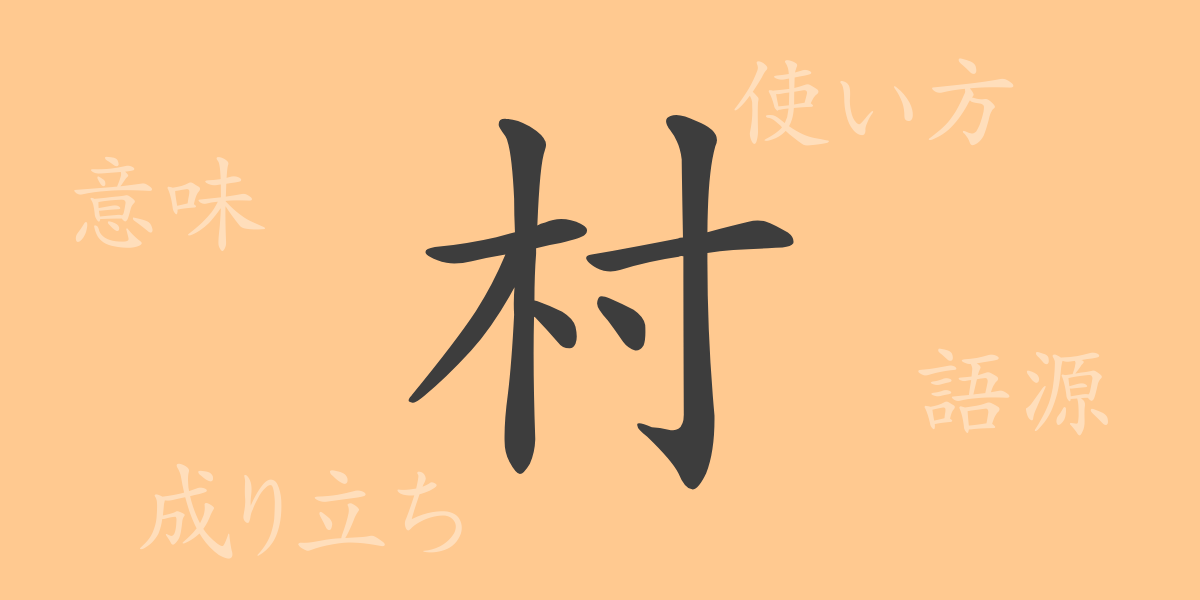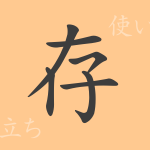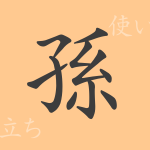The beauty of the Japanese language lies in the deep meanings and histories encapsulated in each Kanji character. “村” (ソン)(むら) (son)(mura), symbolizing the Japanese landscape, is an integral Kanji deeply rooted in our daily lives. This article explores the allure of “村,” from its origins to its modern usage and idiomatic expressions, diving deep into the rich expressions and depth this single character holds.
Origin of “村” (son)
The Kanji “村” has been used since ancient times to denote a small community where people live together. Its etymology suggests it evolved from “ムラ” (mura), meaning a gathering, which transformed into “村.” The Kanji itself combines “木” (もく) (moku), indicating wood, and “寸” (すん) (sun), suggesting stopping, depicting a place where people settle amid abundant trees.
Meaning and Usage of “村” (son)
“村” generally refers to a small regional community where people live together. As an administrative division, it denotes a smaller municipality compared to towns or cities, particularly common in less populated regions of Japan. Metaphorically, it is also used to describe a small community or group within a specific field or area.
Readings, Stroke Count, and Radical of “村” (son)
The Kanji “村” resonates with the beauty of Japan’s nature and communal life through its form and structure.
- Readings: On’yomi “ソン” (son), Kun’yomi “むら” (mura)
- Stroke Count: 7 strokes
- Radical: The radical of “村” is “木” (もく) (moku)
Idioms, Phrases, and Proverbs Using “村” (son) and Their Meanings
Idioms and proverbs containing “村” reflect Japanese culture and values. For example, “村八分” (むらはちぶん) (murahachibun) signifies being ostracized within a village community, highlighting the importance of cohesion. “村上村下” (むらかみむらした) (murakamimurashita) literally means from the top to the bottom of the village, or the entire village. These expressions enrich the Japanese language.
Conclusion on “村” (son)
The meanings embedded in a single Kanji character mirror the culture and history of the nation. The Kanji “村” symbolizes Japan’s natural landscapes, people’s lifestyles, and community ties. Through exploring “村,” we have rediscovered its profound meanings and the richness of Japanese expressions. As we continue learning Japanese, let us reflect on the stories hidden within each Kanji character.

























